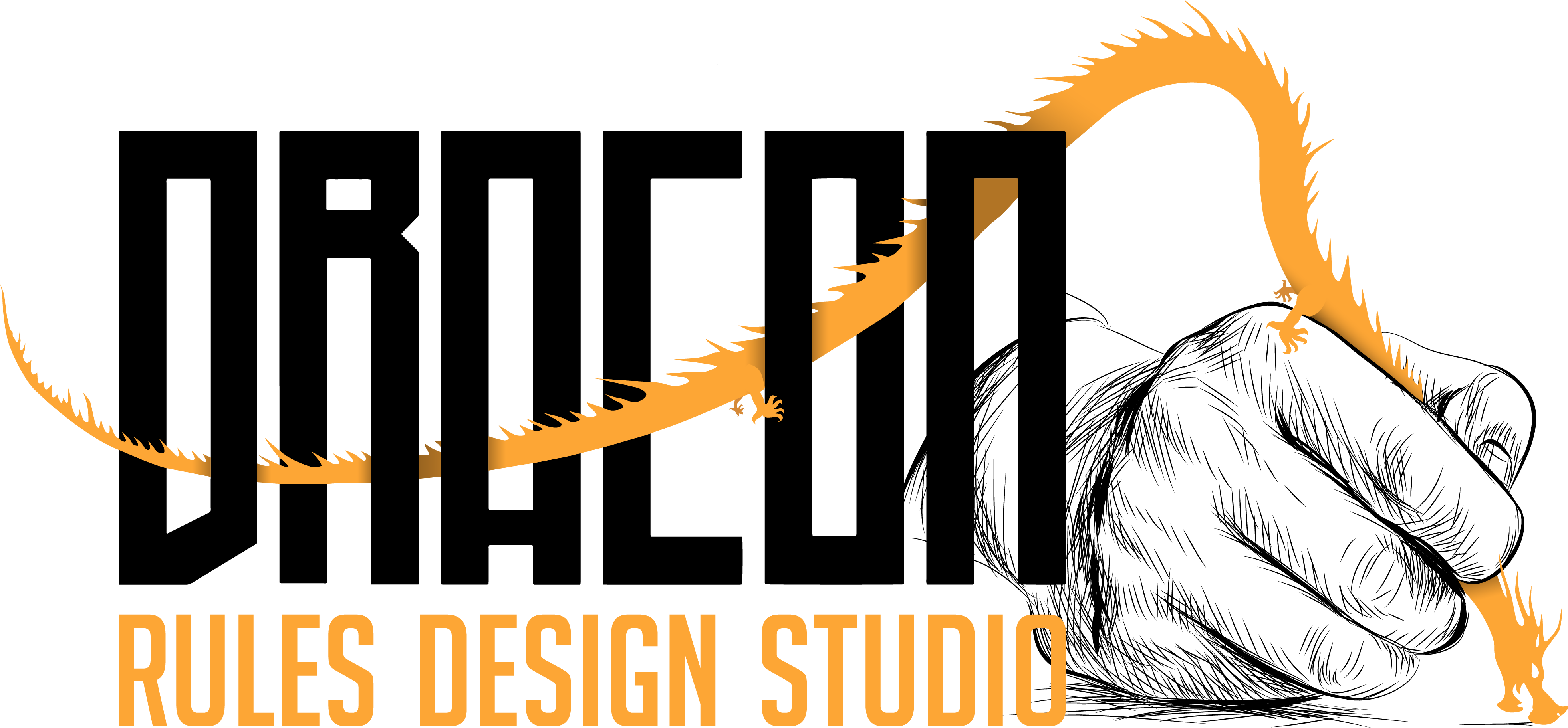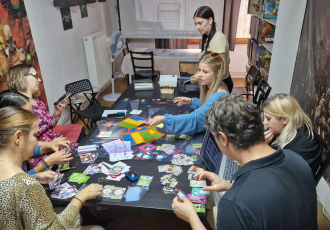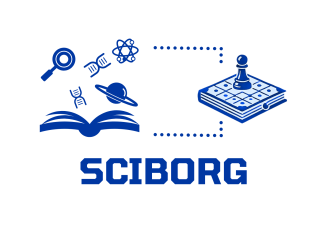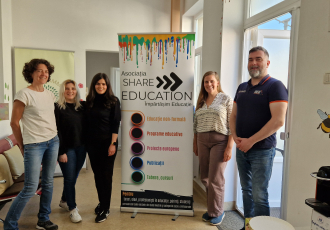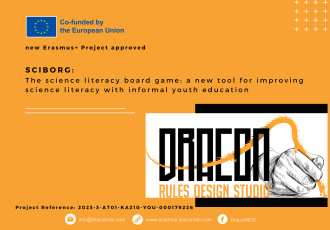
SCIBORG:
The science literacy board game: a new tool for improving science literacy with informal youth education
Find out more about the project:
Program: Erasmus+
Key action: Partnerships for cooperation and exchanges of practices
Action Type: Small-scale partnerships in youth
Project Reference: 2023-3-AT01-KA210-YOU-000179226
Start Date - End Date: 01/04/2024 - 31/03/2025
Duration: 12 months
Our role: Partner
Topics
- Media literacy and tackling disinformation
- New learning and teaching methods and approaches
- Environment and climate change
The SCIBORG project, co-funded by the Erasmus+ Programme, has as aprimary objective to enhance the civic science literacy of young people and youth workers through the development and implementation of an innovative board game. SCIBORG encompasses co-creation, accessibility, engagement, and inclusivity to empower young people with the skills and knowledge needed to better understand the complex field of science and contribute effectively to civic discussions on current topics like climate change.
Background
🔬 Empowering Science Literacy Through Play 🔬
Limited trust in and engagement with science are often rooted in a lack of understanding of the research process and how scientific data is generated. This critical gap underscores the importance of civic science literacy, which equips individuals with the tools to comprehend the dynamic nature of scientific knowledge and critically evaluate media-reported science. Unfortunately, traditional education often struggles to address these complex interdisciplinary topics due to time constraints and competing priorities.
Recognizing this gap, the SCIBORG Project introduces a new approach: a youth-oriented board game designed to teach science literacy in a fun, engaging, and interactive way. Board games have the unique ability to immerse players in first-person scenarios, making them a powerful tool for tackling complex topics. They combine learning with play, making them ideal for informal education settings that engage both youth and adults.
🌱 What Makes SCIBORG Unique?
- Focus on Environmental Science: While rooted in environmental topics, the game teaches transferable skills that apply across scientific fields.
- Interactive & Inclusive: The game encourages players to engage with concepts like the peer review process, the evolution of scientific knowledge, and critical thinking.
- Co-Creation & Collaboration: Developed in partnership with youth and educators from across Europe, the game is shaped by diverse perspectives and real-world insights.
- Accessibility: Available in multiple languages as a print-and-play version and an online application, SCIBORG ensures inclusivity and widespread reach.
By transforming complex scientific concepts into an accessible and enjoyable experience, SCIBORG fosters critical thinking, curiosity, and informed decision-making among youth. Together, we are building a tool that bridges the gap between science and society, inspiring a new generation to embrace the wonders of discovery. 🚀✨
Objectives
1️⃣ Enhance Science Literacy
📖 Equip youth with the skills to understand and critically evaluate the scientific process and its outcomes.
2️⃣ Promote Hands-On Learning Through Play
🎲 Develop an engaging board game that fosters curiosity, critical thinking, and collaboration.
3️⃣ Empower Educators and Youth Workers
🌍 Provide educators with an innovative tool to teach science concepts in formal and informal settings.
The SCIBORG board game
The game is designed for 3 to 4 players and consists of five phases of the research process. The first two phases (Observation, Question) serve as game preparation, involving the distribution of cards and the selection of the bonus card. The following three phases (Hypothesis, Experiment, Conclusion) are the main gameplay phases, where cards are selected. The goal in each of these three phases is to form the longest possible chains of cards. The cards are linked together using symbols that represent the components of each research phase.
After each phase, players present their research findings in the form of a story. Chance cards can add or subtract points. At the end of the game, the bonus card is redeemed, and the total points are calculated.
Research Cards
Build your research using these three types of cards:
Hypothesis
Experiment
Conclusion
Each set simulates a core step in the scientific method.
Total Cards: 120+
Chance Cards
Introduce unpredictable bonuses and challenges! These cards can accelerate your progress or test your adaptability.
Types: Hypothesis, Experiment, Conclusion
Bonus Objective Cards
Earn extra points by completing thematic science-based side missions. Character Cards Every player becomes a unique scientist with a special ability. Diversity: A wide range of characters to encourage inclusivity and roleplay
Player Boards
Organize your research and track your progress through the Hypothesis, Experiment, and Conclusion phases.
Quantity: 4 boards (1 per player)
Score Sheets
Used to record player progress, points, and research success.
Download the cards by clicking the flags:
Rulebook: Your Step-by-Step Guide to Gameplay
The WHAT IF Rulebook is the cornerstone of the game, providing clear and concise instructions to ensure an engaging and seamless gaming experience. It’s designed to make the game accessible for all players, whether they’re seasoned board game enthusiasts or newcomers to the world of democratic simulations.
What’s Inside?
- Simple Setup Instructions: Step-by-step guidance on preparing the game for play, making it easy to get started.
- Comprehensive Rules: Detailed explanations of the gameplay phases, voting mechanisms, and scoring system.
- Illustrative Examples: Clear examples to help players understand the flow of the game and navigate any tricky scenarios.
Why the Rulebook Matters
The Rulebook transforms a deck of cards into a dynamic and thought-provoking experience. It’s crafted to be user-friendly, ensuring everyone can enjoy the game while learning about the democratic process.
Download the cards by clicking the flags:
Trainer’s Guide: elevating the educational experience
The WHAT IF Trainer’s Guide is a powerful resource for educators, youth workers, and facilitators who want to maximize the game’s educational potential. This guide is tailored to support trainers in leading meaningful discussions, encouraging critical thinking, and fostering a deeper understanding of democratic principles.
What’s Included?
- Facilitation Tips: Advice on guiding discussions, managing group dynamics, and keeping players engaged.
- Scenario Insights: Background information on the game’s topics to help trainers provide additional context.
- Adaptation Options: Suggestions for modifying the game to suit different group sizes, timeframes, or learning objectives.
- Prompts for Reflection: Questions to spark meaningful conversations about the game’s scenarios and outcomes.
Why the Trainer’s Guide Matters
This guide ensures that WHAT IF is more than just a game—it’s a transformative educational tool. By equipping trainers with the resources they need, it creates an environment where participants can explore complex ideas, engage in thoughtful debate, and develop their understanding of civic participation and decision-making.
Together, the Rulebook and Trainer’s Guide turn WHAT IF into a versatile and impactful experience, perfect for classrooms, workshops, and community events.
Download the cards by clicking the flags:
Digital Play: Play SCIBORG on Tabletopia
Partners






Latest news about the project
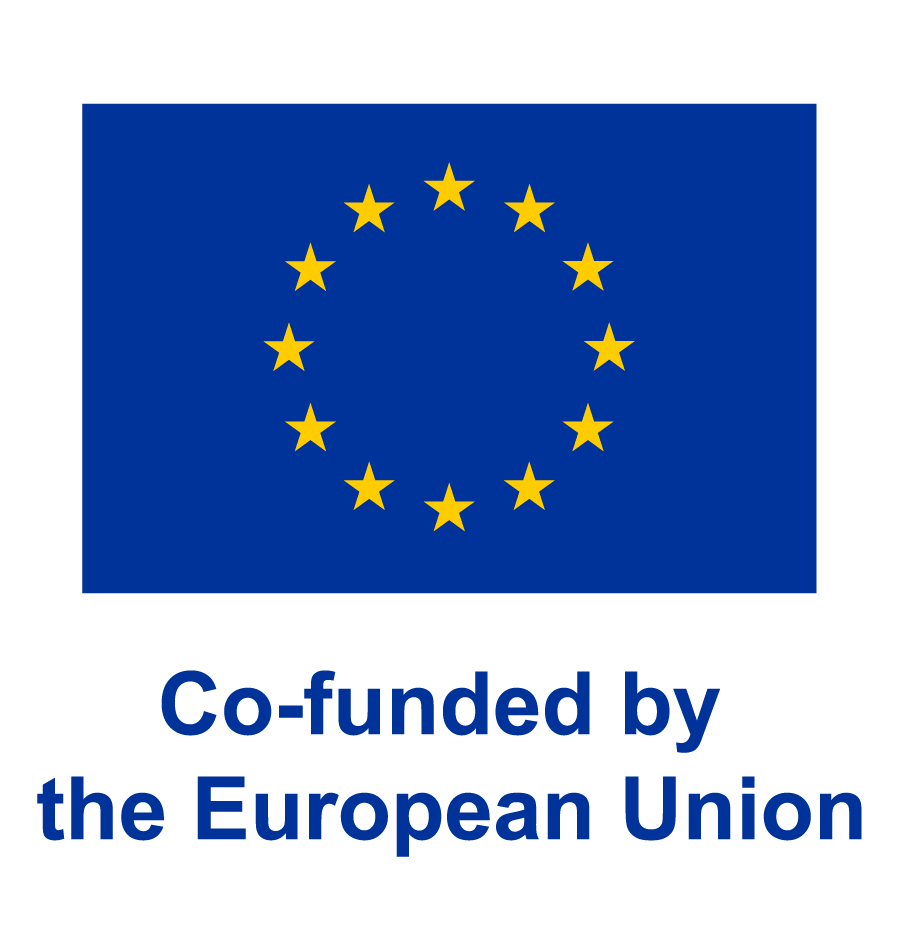
Funded by the European Union. Views and opinions expressed are however those of the author(s) only and do not necessarily reflect those of the European Union or the European Education and Culture Executive Agency (EACEA). Neither the European Union nor EACEA can be held responsible for them.
Project Reference: 2023-3-AT01-KA210-YOU-000179226
